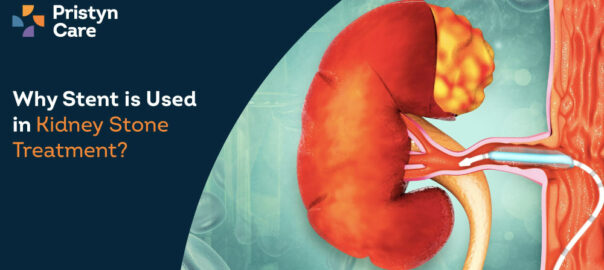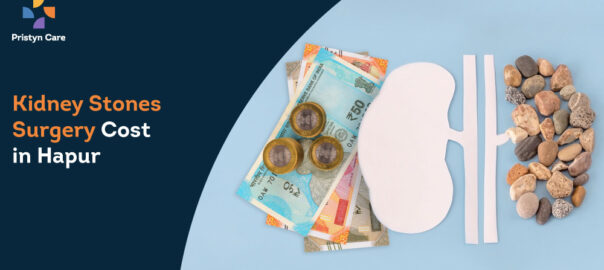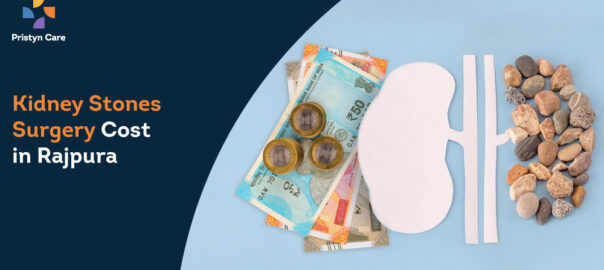![]() Views: 667
Views: 667
Can BPH Cause Kidney Failure?
BPH, a condition characterized by prostate enlargement, is not only known for its urinary symptoms but also its potential impact on kidney function. In this blog, we will examine how BPH can influence kidney health.
Dedicated Support at Every Step!
Our Doctors are available 24 hours a day, 7 days a week to help you!
Table of Contents
Introduction
BPH, a condition characterized by prostate enlargement, is not only known for its urinary symptoms but also its potential impact on kidney function. In this blog, we will examine how BPH can influence kidney health.
Let’s first understand what BPH is.
No Cost EMI, Hassle-free Insurance Approval
What is BPH?
BPH, or benign prostatic hyperplasia, is a common condition that affects the prostate gland in men. It is characterized by the enlargement of the prostate, which can cause symptoms such as frequent urination, weak urine flow, and difficulty emptying the bladder completely. BPH is not a form of cancer, but it can lead to complications if left untreated. The exact cause of BPH is unknown, but age and hormonal changes are believed to play a role. Treatment options for BPH include medication, minimally invasive procedures, and surgery. It is important to consult a healthcare professional for an accurate diagnosis and appropriate management of BPH.
What is Kidney Failure?
Kidney failure, also known as renal failure, is a condition in which the kidneys are no longer able to function properly. The kidneys are crucial in filtering waste products and excess fluids from the blood, regulating electrolyte levels, and producing hormones that help control blood pressure and stimulate red blood cell production. When the kidneys fail, waste products, toxins, and fluids start to accumulate in the body, leading to various symptoms. These symptoms may include fatigue, shortness of breath, swelling in the legs and ankles, decreased urine output, and confusion. Kidney failure can be caused by various factors, such as diabetes, high blood pressure, kidney infections, and certain medications. Treatment options for kidney failure may include dialysis or kidney transplantation. It is important to seek medical attention if any symptoms of kidney failure are experienced.
How can BPH cause kidney failure?
Here are some pointers on how BPH can cause kidney failure:
- Urinary Retention: One of the primary symptoms of BPH is difficulty in urination. As the prostate gland enlarges, it can obstruct the flow of urine from the bladder, causing urinary retention. When urine is not adequately expelled from the bladder, it can lead to various urinary tract infections and kidney damage over time.
- Urinary Tract Infections (UTIs): BPH can increase the risk of developing urinary tract infections. When urine is retained in the bladder due to the obstructive nature of an enlarged prostate, it provides a breeding ground for bacteria. If left untreated, these infections can ascend to the kidneys, causing kidney infections or pyelonephritis. Repeated kidney infections can eventually lead to kidney damage and, in severe cases, kidney failure.
- Hydronephrosis: In some cases, BPH can cause the compression or obstruction of the ureters, the tubes that carry urine from the kidneys to the bladder. This can result in a condition called hydronephrosis, where the kidneys become swollen due to the backup of urine. Over time, this can lead to kidney damage if not addressed promptly.
- Bladder Stones: BPH can increase the likelihood of developing bladder stones. When urine is retained in the bladder, minerals in the urine can crystallize and form stones. These stones can cause irritation and inflammation in the bladder, leading to urinary tract infections and potential kidney damage.
- Chronic Kidney Disease: Prolonged untreated BPH can cause chronic kidney disease (CKD). CKD is characterized by the gradual loss of kidney function over time. The combination of urinary retention, urinary tract infections, hydronephrosis, and other complications of BPH can contribute to the development and progression of CKD. In severe cases, CKD can progress to kidney failure, where the kidneys are no longer able to filter waste products and maintain fluid and electrolyte balance adequately.
What are the symptoms of BPH and Kidney failure?
Symptoms of BPH (Benign Prostatic Hyperplasia):
- Frequent urination: BPH can lead to an increased frequency of urination, particularly during the night. This is known as nocturia.
- Difficulty starting and stopping urination: BPH can cause a weak urine flow and difficulty initiating or stopping urination. This can lead to straining while urinating.
- Urgency: Individuals with BPH may experience a sudden and intense urge to urinate, often accompanied by a feeling of bladder fullness.
- Incomplete emptying of the bladder: BPH can prevent the bladder from fully emptying, resulting in a persistent feeling of incomplete emptying after urination.
- Weak urine stream: BPH can cause a weakened or diminished urine stream. This can be a result of the prostate gland pressing against the urethra, leading to a restricted flow.
Symptoms of Kidney Failure:
- Fatigue and weakness: Kidney failure can lead to a buildup of toxins in the blood, resulting in fatigue, weakness, and a general feeling of being unwell.
- Decreased urine output: One of the key indicators of kidney failure is a decrease in urine production. This can range from minimal to no urine output.
- Swelling: Kidney failure can cause fluid retention in the body, leading to swelling in the legs, ankles, face, or hands. This swelling is known as edema.
- Shortness of breath: Buildup of fluid in the lungs due to kidney failure can lead to difficulty breathing and shortness of breath.
- Nausea and vomiting: Kidney failure can cause a buildup of waste products in the blood, leading to nausea, vomiting, and loss of appetite.
- Confusion and cognitive difficulties: As kidney function declines, toxins can accumulate in the brain, causing confusion, difficulty concentrating, and memory problems.
- High blood pressure: Kidney failure can contribute to the development or worsening of high blood pressure.
- Skin rash or itching: Accumulating waste products in the blood can cause skin rashes or severe itching.
- Muscle cramps and twitches: Imbalances in electrolytes, such as potassium and calcium, can occur in kidney failure, leading to muscle cramps and twitches.
- Bone pain: Kidney failure can disrupt the balance of calcium and phosphorus in the body, resulting in bone pain and an increased risk of fractures.
It is important to note that these symptoms can vary depending on the severity of BPH or kidney failure, and individuals may experience different combinations of these symptoms. If you are experiencing any of these symptoms, it is recommended to consult with an experienced urologist for a proper diagnosis and appropriate treatment.
When should you consult a doctor for kidney issues due to BPH?
- Persistent pain or discomfort: If you experience persistent pain or discomfort in your kidney area, it is advisable to consult a doctor. This could be a sign of kidney issues caused by benign prostatic hyperplasia (BPH). It is important to seek medical attention to rule out any potential complications.
- Changes in urination: Any noticeable changes in urination patterns should not be ignored. If you experience frequent urination, difficulty starting or stopping urination, weak urine flow, or blood in the urine, it is recommended to consult a doctor. These symptoms could indicate kidney problems related to BPH.
- Increased urgency: If you feel a sudden and urgent need to urinate more frequently, it may be a cause for concern. This symptom, along with kidney pain, could be a sign of kidney issues due to BPH. Seeking medical advice can help diagnose the underlying cause and determine the appropriate treatment.
- Recurrent urinary tract infections (UTIs): Frequent UTIs can be a result of kidney problems caused by BPH. If you experience recurrent UTIs along with other symptoms such as kidney pain or changes in urination, it is important to consult a doctor. They can provide guidance on managing UTIs and addressing underlying kidney issues.
- Worsening symptoms: If you have been previously diagnosed with BPH and notice a worsening of symptoms, it is advisable to consult a doctor. This could include increased kidney pain, difficulty urinating, or other related symptoms. Seeking medical attention can help determine if any complications have arisen and if treatment adjustments are necessary.
How to reduce the risks of kidney failure due to BPH?
Here are some tips to Reduce the Risks of Kidney Failure due to BPH:
- Maintain a Healthy Diet: Consuming a balanced diet is crucial in reducing the risks of kidney failure associated with benign prostatic hyperplasia (BPH). Include plenty of fruits, vegetables, whole grains, and lean proteins in your daily meals. Avoid excessive intake of salt, sugar, and processed foods, as they can contribute to inflammation and put stress on the kidneys.
- Stay Hydrated: Drinking an adequate amount of water throughout the day helps in maintaining proper kidney function. It helps in flushing out toxins and waste products from the body, reducing the risk of kidney damage. Aim to drink at least 8 glasses of water per day, unless advised otherwise by your healthcare professional.
- Take Medications as Prescribed: If you have been prescribed medications for BPH, make sure to take them as directed by your doctor. These medications can help in managing the symptoms associated with BPH, which in turn reduces the burden on the kidneys and lowers the risk of kidney failure.
- Manage Blood Pressure and Blood Sugar Levels: High blood pressure and uncontrolled diabetes can lead to kidney damage over time. It is important to monitor and manage your blood pressure and blood sugar levels if you have BPH. Follow a healthy lifestyle, take prescribed medications, and consult your healthcare provider for regular check-ups and necessary adjustments.
- Engage in Regular Physical Activity: Regular exercise is beneficial for overall health and can help reduce the risk of kidney failure due to BPH. Engage in moderate-intensity activities such as brisk walking, cycling, swimming, or any other form of exercise that you enjoy. Aim for at least 150 minutes of moderate exercise per week, as recommended by health authorities.
- Avoid Smoking and Limit Alcohol Intake: Smoking and excessive alcohol consumption can contribute to kidney damage and worsen the symptoms of BPH. Quitting smoking and limiting alcohol intake can significantly reduce the risks of kidney failure. Seek support from healthcare professionals or support groups if needed.
- Monitor Kidney Function: Regular monitoring of kidney function is essential for individuals with BPH. Your healthcare provider may recommend periodic blood tests, urine tests, or imaging studies to assess the health of your kidneys. These tests can help in detecting any early signs of kidney damage and enable timely intervention.
- Maintain a Healthy Weight: Being overweight or obese can increase the risk of kidney damage in individuals with BPH. Adopting a healthy lifestyle that includes a balanced diet and regular exercise can help in achieving and maintaining a healthy weight. Consult a healthcare professional for personalized guidance on weight management.
Conclusion
An untreated enlarged prostate can result in kidney failure. To prevent this serious complication, patients should seek timely treatment for the condition. Early intervention is crucial to ensure kidney health and overall well-being.















